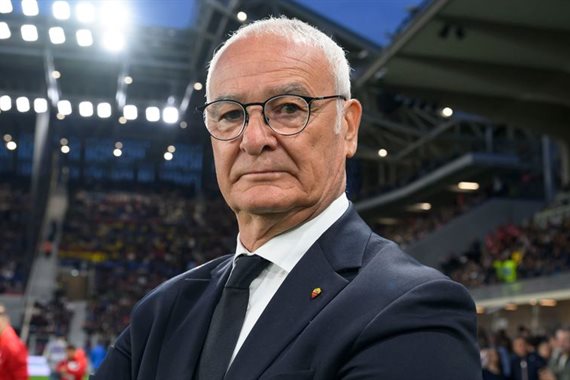ARTICLE AD BOX
Published On 28 May 2025
A United States federal judge has said that an effort by the administration of President Donald Trump to deport pro-Palestine student activist Mahmoud Khalil is likely unconstitutional.
District Judge Michael Farbiarz of New Jersey wrote on Wednesday that the government’s claim that Khalil constituted a threat to US national security and foreign policy was not likely to succeed.
“Would an ordinary person have a sense that he could be removed from the United States because he ‘compromise[d]’ American ‘foreign policy interests’ — that is, because he compromised US relations with other countries — when the Secretary has not determined that his actions impacted US relations with a foreign country?” Farbiarz wrote. “Probably not.”
Farbiarz did not immediately rule on the question of whether Khalil’s First Amendment rights to free speech were violated. He also did not order Khalil’s immediate release, citing unanswered questions about his permanent residency application.
The judge is expected to order further steps in the coming days.
A ruling against the government would be the latest legal setback for the Trump administration’s controversial efforts to crack down on pro-Palestine activism across the US in the name of national security and combating anti-Semitism.
But critics have accused the Trump administration of violating basic constitutional rights in its efforts to do so.
Khalil, a lawful permanent resident of the US, was the first high-profile arrest made in the Trump administration’s push to expel student protesters involved in demonstrations against Israel’s war in Gaza.
A former graduate student, Khalil had served as a spokesperson for the antiwar protests at Columbia University. But on March 8, the 30-year-old was arrested in the hall of his student housing building in New York City, while his wife, Dr Noor Abdalla, filmed the incident.
He was then transferred from a detention centre in New Jersey to one in Jena, Louisiana, while his lawyers struggled to ascertain his location. He remains imprisoned in the Jena facility while the US government seeks his deportation.
In public statements, Khalil has said that his detention is part of an effort to chill dissent over US support for Israel’s war, which has been described as a genocide by human rights groups and United Nations experts.
Civil liberties organisations have also expressed alarm that Khalil’s detention appears premised on his political views, rather than any criminal acts. Khalil has not been charged with any crime.
In Louisiana, Khalil continues to face an immigration court weighing his deportation. But in a separate case before the US federal court in Newark, New Jersey, Khalil’s lawyers are arguing a habeas corpus petition: in other words, a case that argues their client has been unlawfully detained.
US Secretary of State Marco Rubio, acting on behalf of the Trump administration, has cited the Immigration and Nationality Act of 1952 as the legal basis for Khalil’s detention.
That Cold War-era law stipulates that the secretary of state can deport a foreign national if that person is deemed to pose “potentially serious adverse foreign policy consequences”.
But that law has been rarely used and raises concerns about conflicts with the First Amendment of the US Constitution, which guarantees the right to free speech regardless of citizenship.
Judge Farbiarz appeared to echo that concern, warning that the Trump administration’s rationale appeared to meet the standards for “constitutional vagueness”.
That, in turn, means Khalil’s petition is “likely to succeed on the merits of his claim” that the government’s actions were unconstitutional, the judge wrote on Wednesday.
Khalil’s legal team applauded the judge’s order, writing in a statement afterwards, “The district court held what we already knew: Secretary Rubio’s weaponization of immigration law to punish Mahmoud and others like him is likely unconstitutional.”
Khalil is one of several high-profile students whose cases have tested the constitutional bounds of the Trump administration’s actions.
Other international students detained for their involvement in pro-Palestine politics, such as Tufts University student Rumeysa Ozturk and Columbia University student Mohsen Mahdawi, have been released from detention after legal challenges.
But Khalil remains in detention. The government denied a request for Khalil’s temporary release that would have allowed him to witness the birth of his son in April.
It also sought to prevent him from holding his newborn son during visitation sessions at a Louisiana detention centre.
“I am furious at the cruelty and inhumanity of this system that dares to call itself just,” Abdalla, Khalil’s wife, said in a statement.
She noted that Immigration and Customs Enforcement (ICE) had denied the family “this most basic human right” after she flew more than 1,000 miles to visit him in Louisiana with their newborn son.
A judge blocked those efforts by ICE last week, allowing Khalil to hold his son for the first time more than one month after he was born.
Source
:
Al Jazeera and news agencies

 4 weeks ago
15
4 weeks ago
15








 English (US) ·
English (US) ·